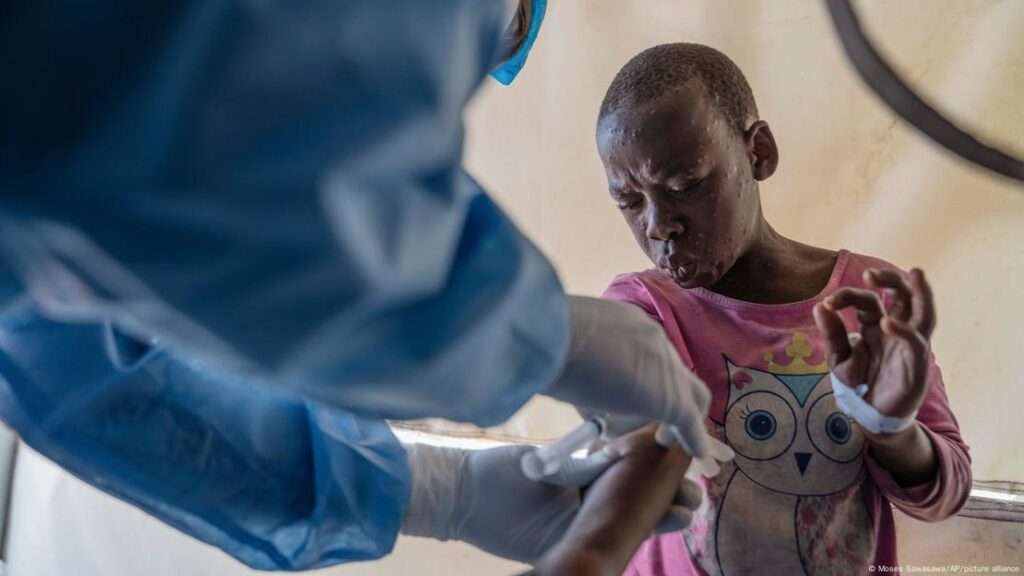Senegalese health authorities have confirmed a case of mpox involving a foreign national who entered the country last week. It marks the first detected case in Senegal this year, the Ministry of Health announced.
In a statement, the ministry revealed that “the patient’s clinical condition is stable. He is currently in isolation and is receiving care.” Officials did not provide details on the strain of the virus found in the patient.
Health ministry spokespersons added that no additional infections had been recorded since the announcement. However, 25 people identified as contacts are currently being monitored. Authorities stressed that containment measures remain in place to prevent wider spread.
Mpox, formerly known as monkeypox, is a viral zoonotic disease that spreads through close human contact, skin-to-skin interaction, and respiratory droplets. While the illness is typically mild, it can cause severe complications in vulnerable groups and is occasionally fatal. Symptoms include fever, body aches, and fluid-filled lesions that can cover the skin.
The World Health Organization (WHO) declared mpox a global public health emergency in August 2024. The move came after a surge of infections in the Democratic Republic of Congo (DRC) spread across several neighboring countries. It was the second time in two years the WHO had declared the virus a major international health threat.
Mpox was first identified in 1958 in monkeys kept for research in Denmark. The first human case appeared in 1970, when a nine-month-old boy in the DRC was diagnosed with the infection. Since then, the disease has remained endemic in several central and western African countries, with sporadic outbreaks reported across the continent. Transmission has historically been linked to animal reservoirs, particularly rodents and squirrels, though human-to-human spread has become more common in recent decades.
Recent years have witnessed a rise in mpox cases linked to fragile health systems, armed conflict, and population displacement. In 2024, Sierra Leone recorded more than 3,000 cases and 15 deaths in a single month, overwhelming hospitals and raising concerns about regional contagion.
The DRC remains the epicenter of mpox outbreaks, especially in rural rainforest areas. Children under the age of 15 account for a large share of cases, reflecting their vulnerability to viral infections. Other affected countries include the Central African Republic, Sierra Leone, and several in West and East Africa.

Experts Warn Of Virus’s Persistent Threat
The severity of mpox infections depends largely on the viral clade involved and the level of healthcare available. The Central African strain, known as Clade I, has been associated with fatality rates as high as 10 percent in past outbreaks. By comparison, Clade II, which originates in West Africa, has generally proven less lethal.
Recent studies suggest that with improved medical treatment, overall fatality rates can be reduced to about 1.7 percent. However, newborns, children, pregnant women, and individuals with weakened immune systems remain at high risk of severe complications.
Health experts caution that the disease’s persistence underscores the need for stronger surveillance and public education campaigns. They warn that mpox continues to pose both regional and global risks, particularly given the potential for cross-border transmission.
For now, Senegal’s authorities say the situation is under control. They have urged the public not to panic but to remain alert and to report any symptoms promptly.























